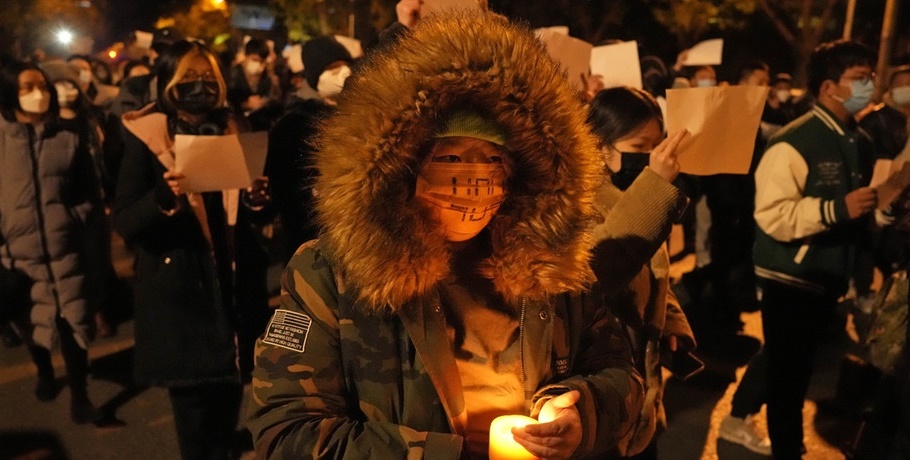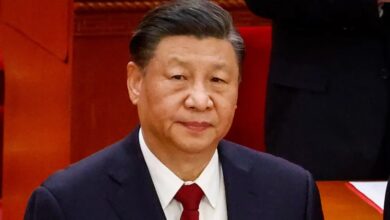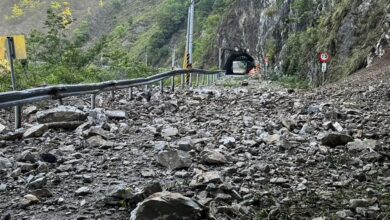Protests against zero covid policy in China! Numerous arrests
Against zero covid policy... Numerous arrests during protests in China

In several cities in China, people have demonstrated against the strict corona policy. There were many arrests. The BBC reports that one of its reporters was temporarily arrested and beaten by police.
Until the early hours of the morning, people roamed the streets of the Chinese capital Beijing and demonstrated against China’s strict zero-Covid policy. An estimated several hundred people gathered at various locations in Beijing.
Many brought a sheet of white paper, which has become a symbol of the protests in China over the past few hours. “There is nothing more to say,” said demonstrators to ARD about the blank sheet of paper – it is considered a protest against censorship. The police were in action with a massive large contingent and tried to disperse the demonstrators.
A young Beijing resident who wished to remain anonymous told ARD about censorship in China: “People who aren’t here today won’t know anything about it tomorrow. The media won’t report about it either. But we can come here . At this moment we exist right here, it already means something. And we speak our minds. I am a Beijing native, have lived here for many years. What I experienced today is new to me. Since my childhood, I have never had the chance had to express myself publicly.”
People want to show solidarity with those who have already demonstrated against the corona measures in other cities in China and have been arrested, a woman told the Reuters news agency in Beijing.
“In Shanghai, many people have already been arrested, not just last night. They did it for everyone. For all people, so that they are not locked in their homes, so that everyone can get medicine and food. We have to help these people. Liberated the people of Shanghai!”
Protests in Shanghai, Nanjing and Urumqi
The protests in Beijing followed protests in Shanghai and other cities such as Nanjing in the east of the country and Urumqi, the capital of China’s Xinjiang region. In Shanghai, people sang the Chinese national anthem and the international several times. They demanded an end to lockdowns and freedom. They also shouted “Long live the people” and “I love China”.
But there was also clear criticism of the government. There were some calls for state and party leader Xi Jinping to resign.
A man told ARD: “We are here because of the fire in Urumqi, which took lives. Urumqi has been closed for more than 100 days. The people of Shanghai know how it feels. We were in lockdown for two months. That’s why are we brave enough to come here today to support. If we post anything about Urumqi, the authorities will delete our posts and videos and ban our accounts. We are here today to say: Not dictatorship but democracy Xi Jinping resign!”
During the protests in Shanghai, the police sometimes cracked down on demonstrators. Numerous people were arrested. Among them was a reporter from the British broadcaster BBC, who had reported on the protests in Shanghai. According to the BBC, he was beaten and kicked by police officers when he was arrested, even though he was accredited as a journalist. He was released after several hours.
In a statement, the BBC expressed concern about how journalists are treated in China. There is no freedom of the press or freedom of expression in China.
Apartment fire in Urumqi trigger
The protests in China against the corona measures were triggered by an apartment fire in Urumqi, in which ten people died on Thursday evening, according to official information. Rumors of more fatalities are also circulating in Chinese online networks. So far, this has not been verified.
Local residents complain that the fire brigade should not have reached the scene of the accident in time due to road closures caused by the corona virus.
The Chinese state and party leadership continues to adhere to a strict zero-Covid policy. Despite the strict measures, China has recorded the highest number of new infections in the past few days since the beginning of the pandemic.



